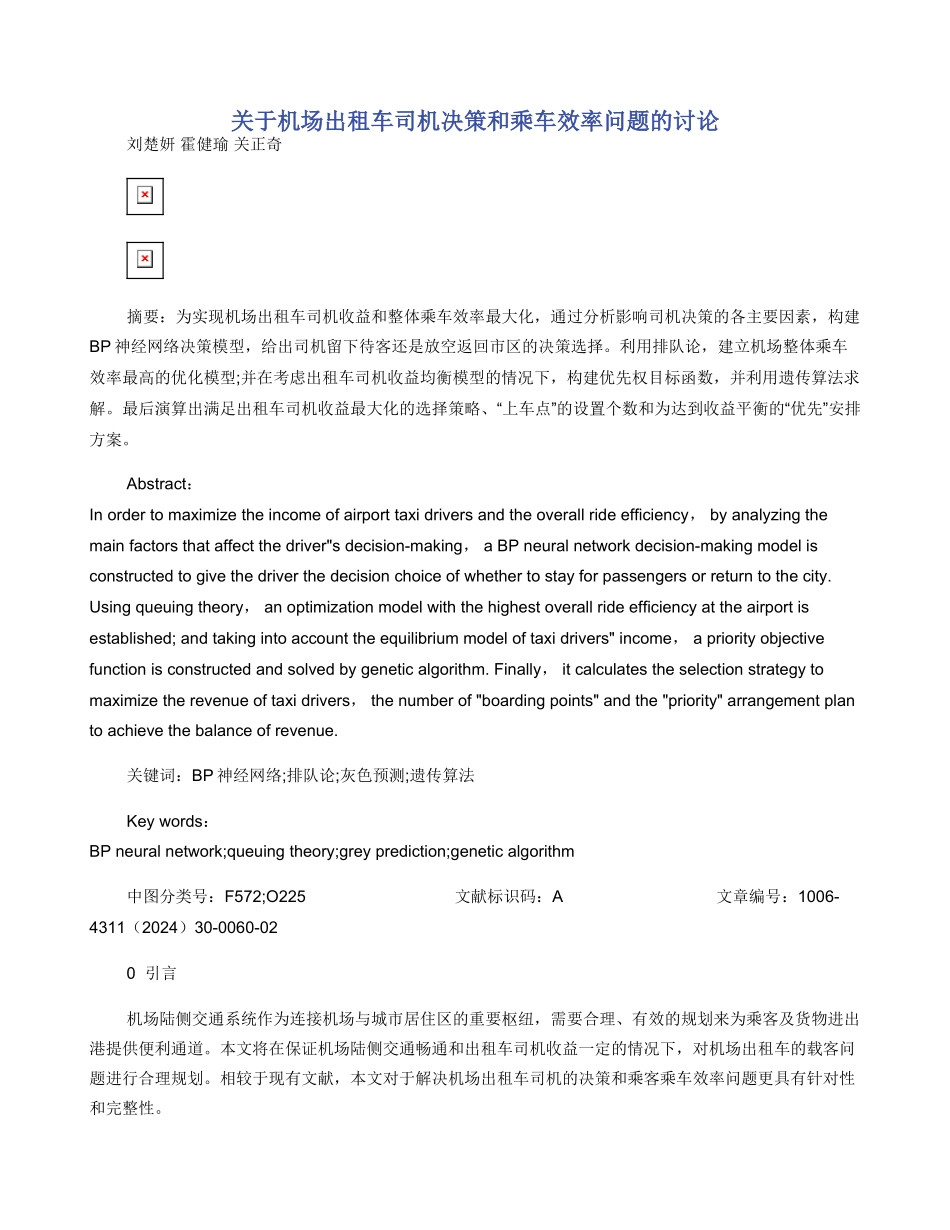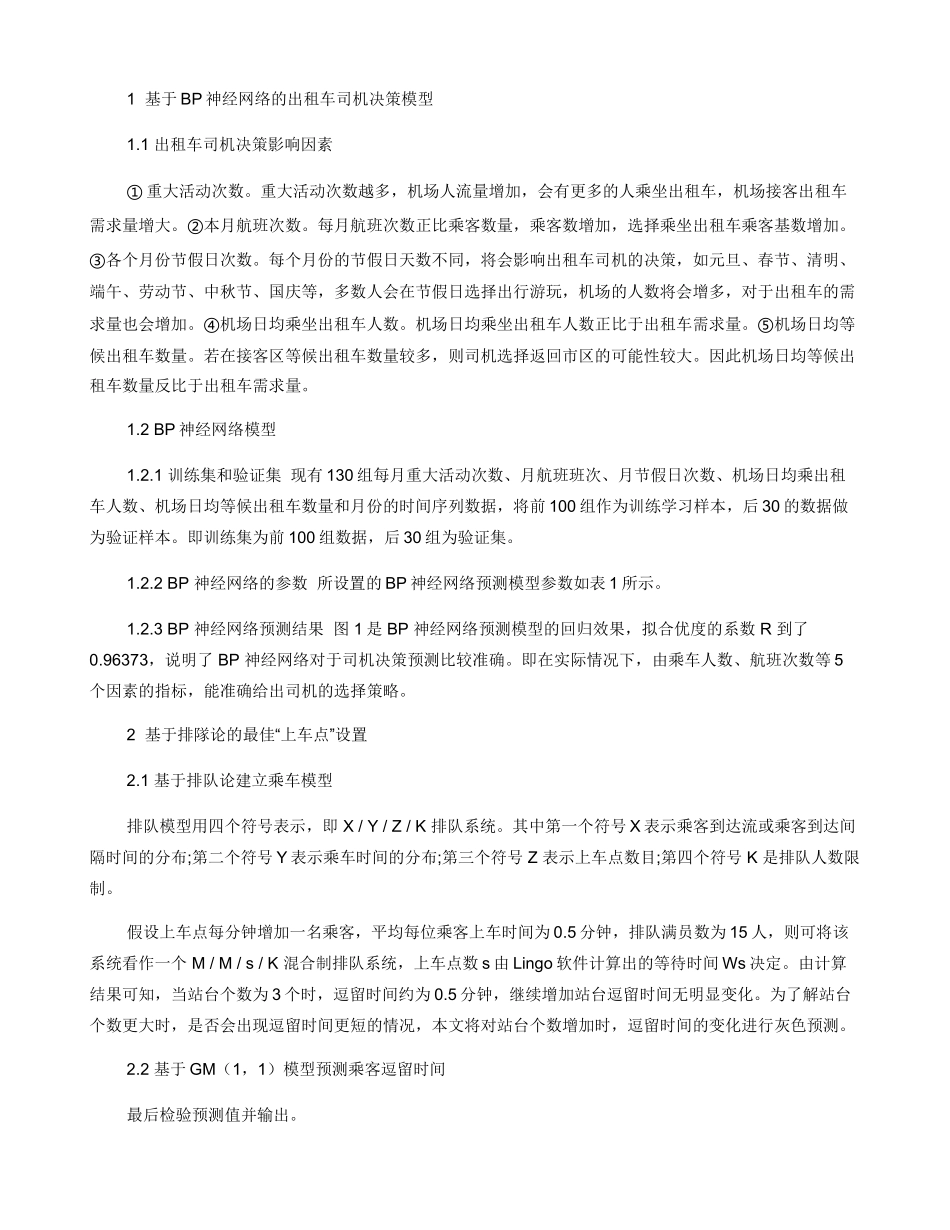关于机场出租车司机决策和乘车效率问题的讨论刘楚妍 霍健瑜 关正奇摘要:为实现机场出租车司机收益和整体乘车效率最大化,通过分析影响司机决策的各主要因素,构建BP 神经网络决策模型,给出司机留下待客还是放空返回市区的决策选择。利用排队论,建立机场整体乘车效率最高的优化模型;并在考虑出租车司机收益均衡模型的情况下,构建优先权目标函数,并利用遗传算法求解。最后演算出满足出租车司机收益最大化的选择策略、“上车点”的设置个数和为达到收益平衡的“优先”安排方案。Abstract: In order to maximize the income of airport taxi drivers and the overall ride efficiency, by analyzing the main factors that affect the driver"s decision-making, a BP neural network decision-making model is constructed to give the driver the decision choice of whether to stay for passengers or return to the city. Using queuing theory, an optimization model with the highest overall ride efficiency at the airport is established; and taking into account the equilibrium model of taxi drivers" income, a priority objective function is constructed and solved by genetic algorithm. Finally, it calculates the selection strategy to maximize the revenue of taxi drivers, the number of "boarding points" and the "priority" arrangement plan to achieve the balance of revenue.关键词:BP 神经网络;排队论;灰色预测;遗传算法Key words: BP neural network;queuing theory;grey prediction;genetic algorithm中图分类号:F572;O225 文献标识码:A 文章编号:1006-4311(2024)30-0060-020 引言机场陆侧交通系统作为连接机场与城市居住区的重要枢纽,需要合理、有效的规划来为乘客及货物进出港提供便利通道。本文将在保证机场陆侧交通畅通和出租车司机收益一定的情况下,对机场出租车的载客问题进行合理规划。相较于现有文献,本文对于解决机场出租车司机的决策和乘客乘车效率问题更具有针对性和完整性。1 基于 BP 神经网络的出租车司机决策模型1.1 出租车司机决策影响因素① 重大活动次数。重大活动次数越多,机场人流量增加,会有更多的人乘坐出租车,...


